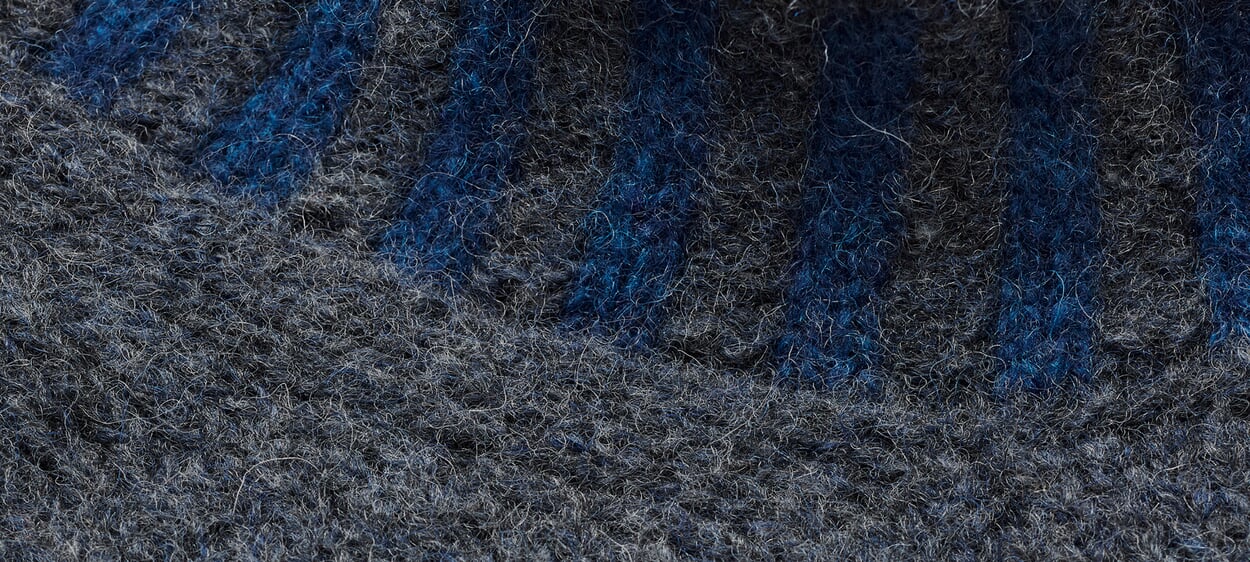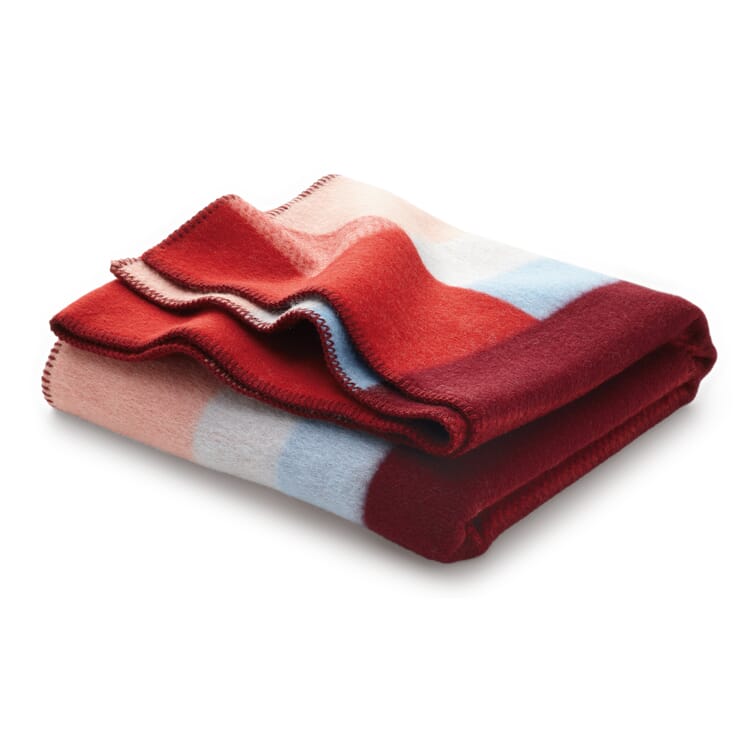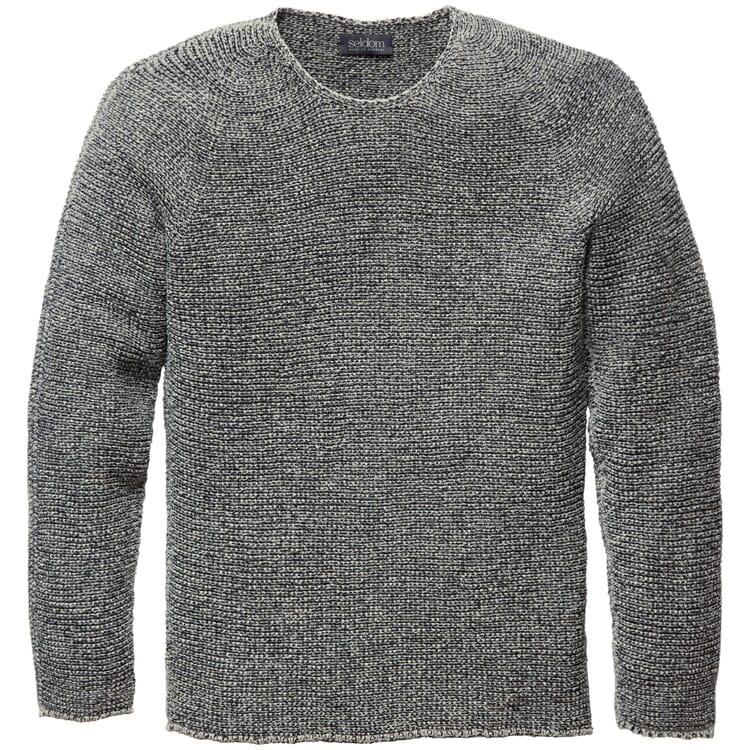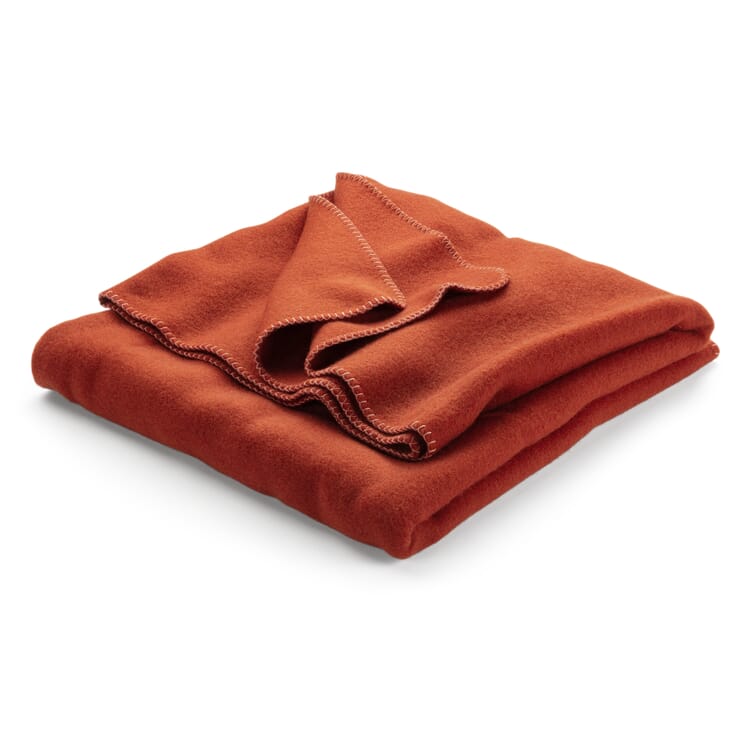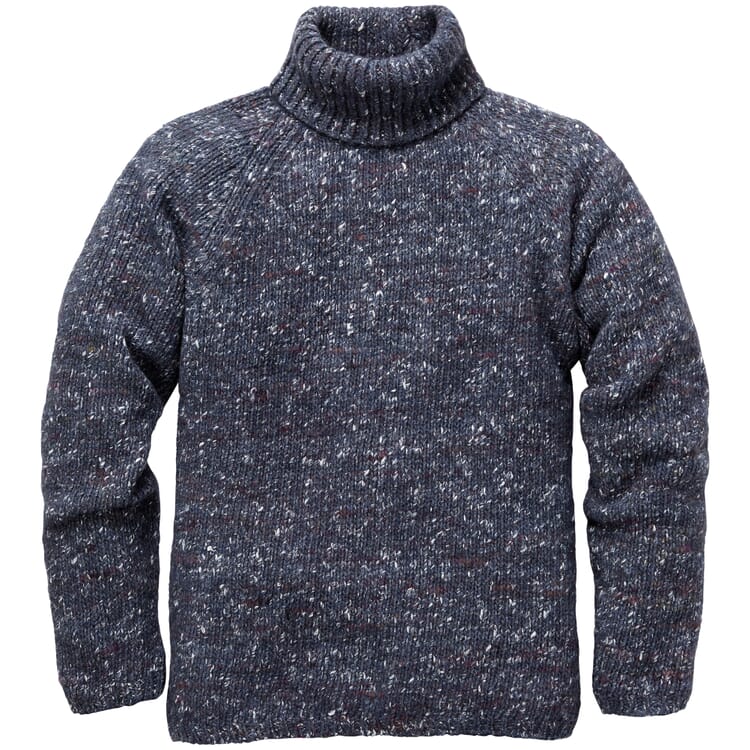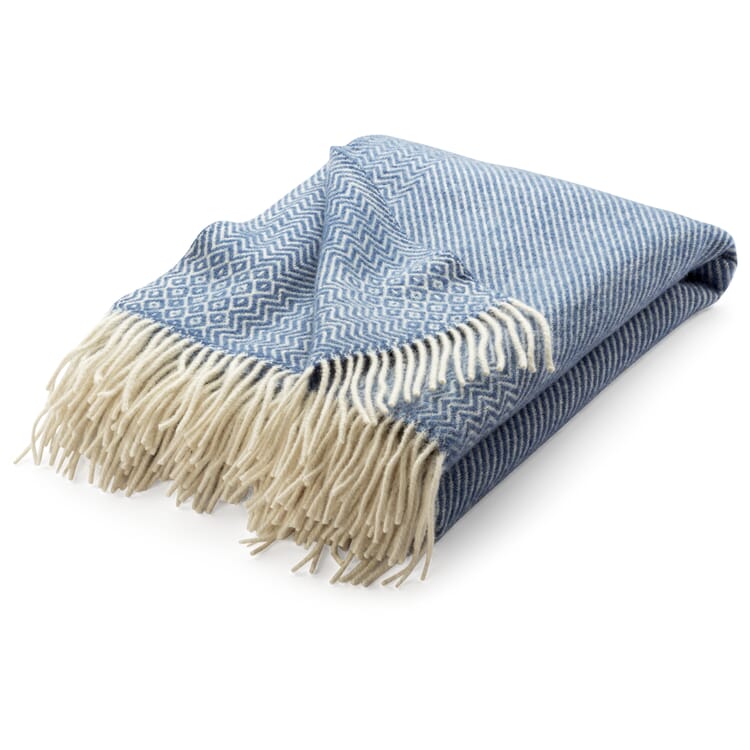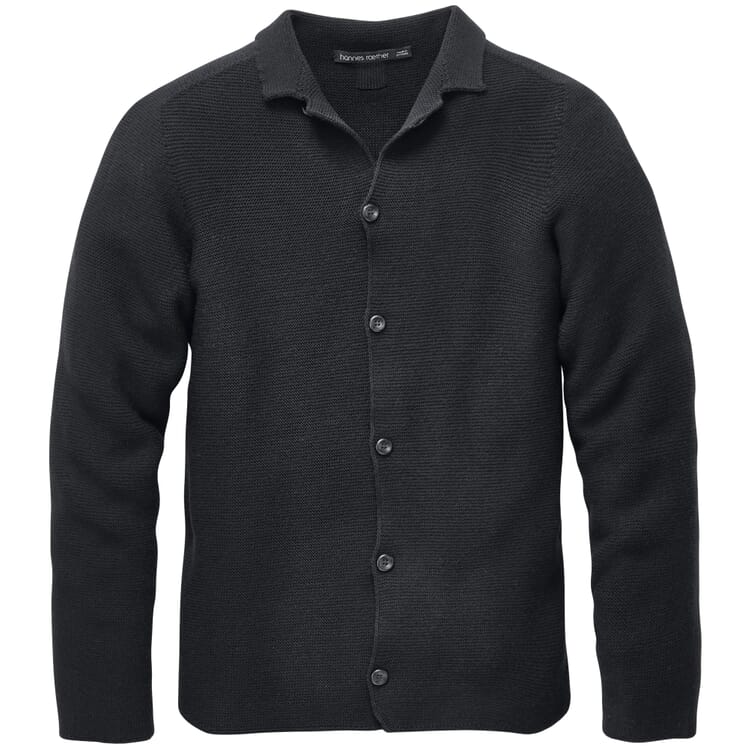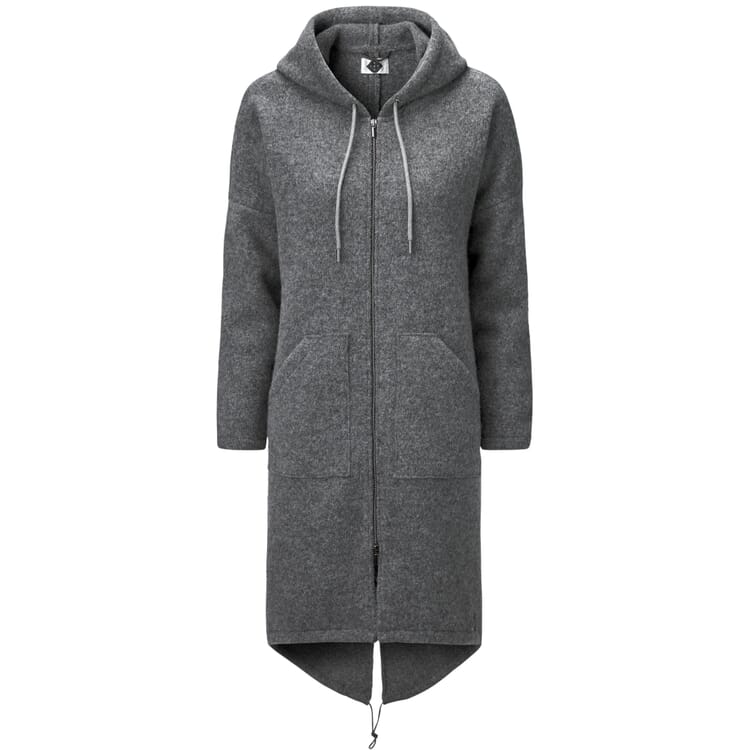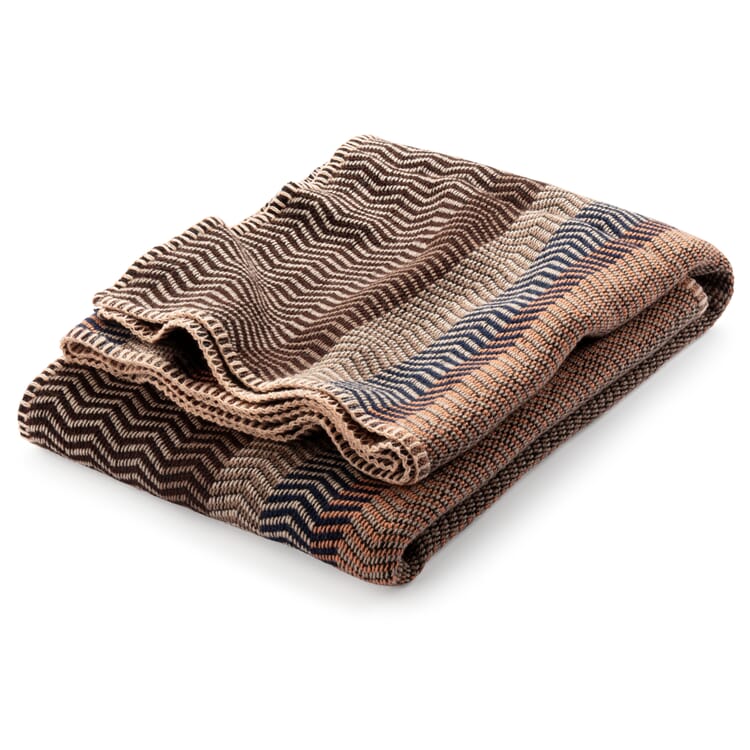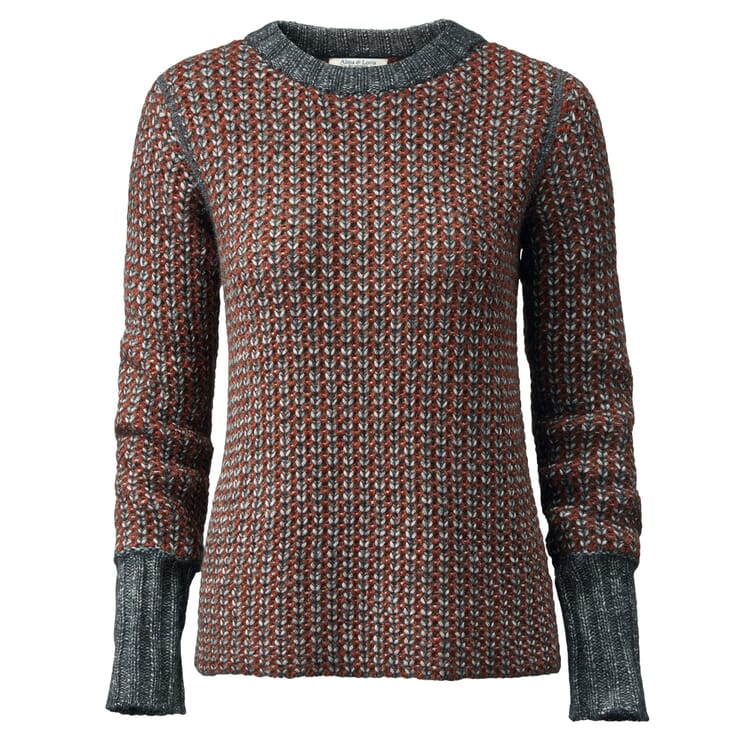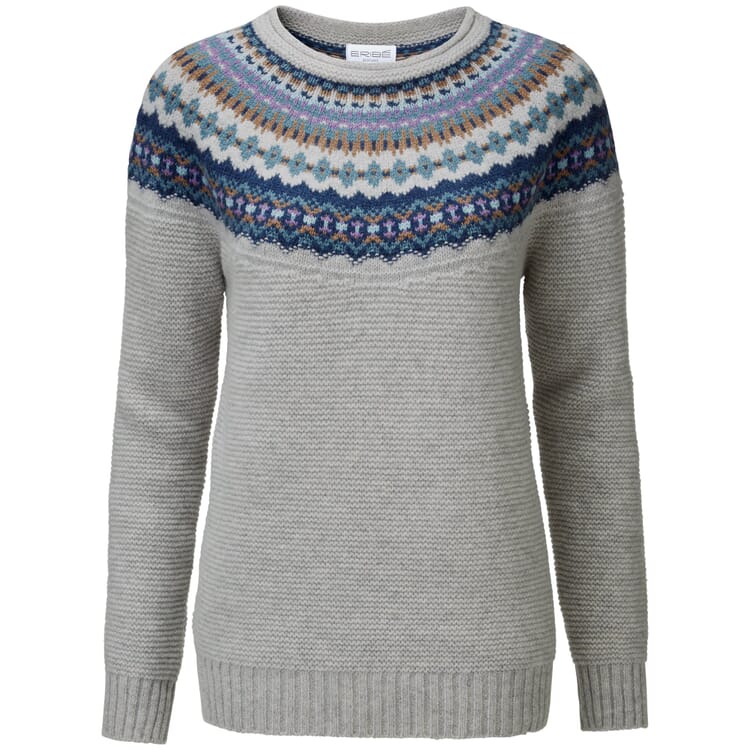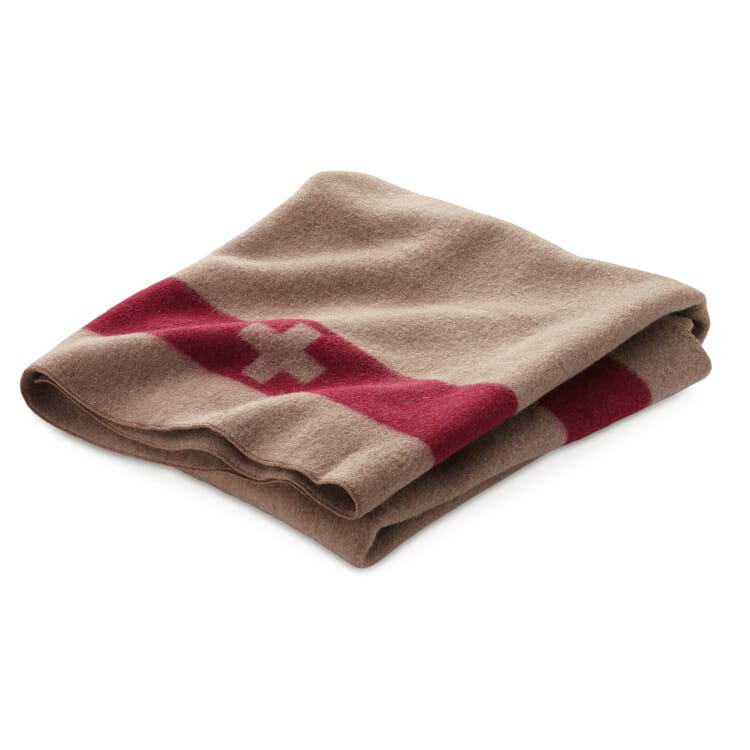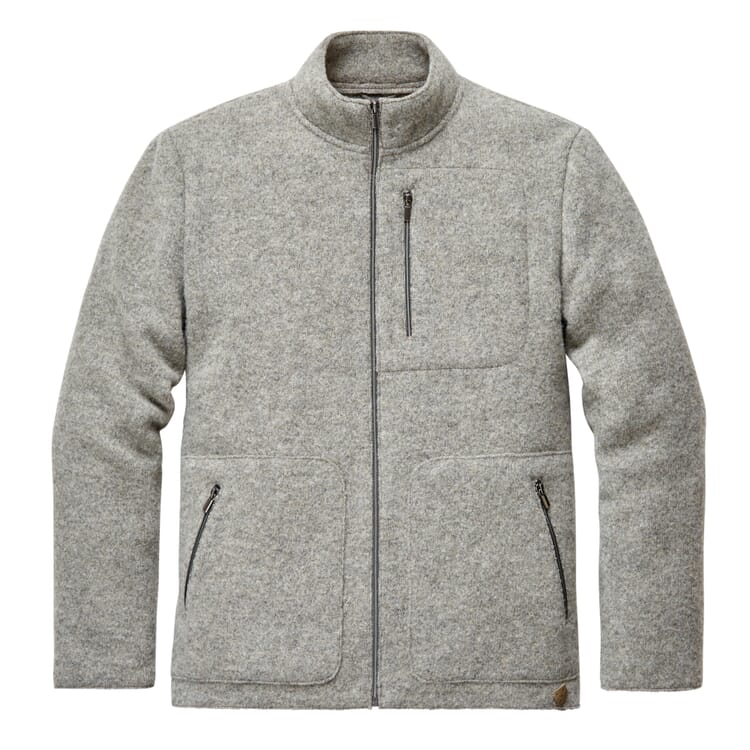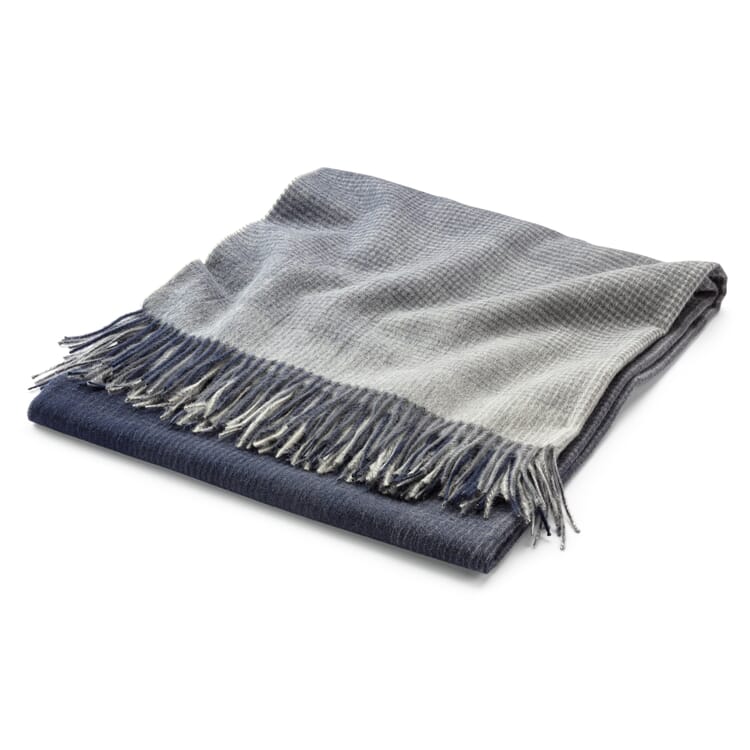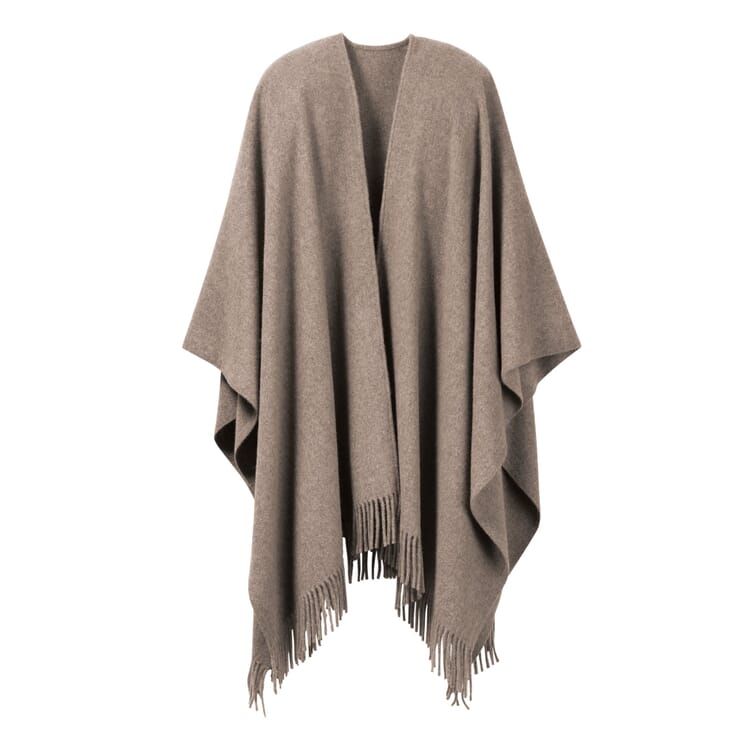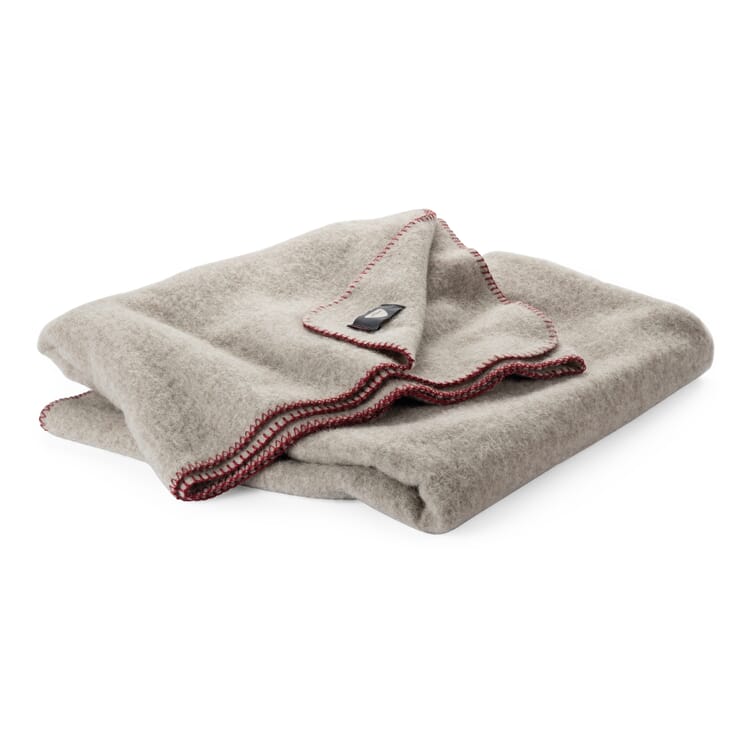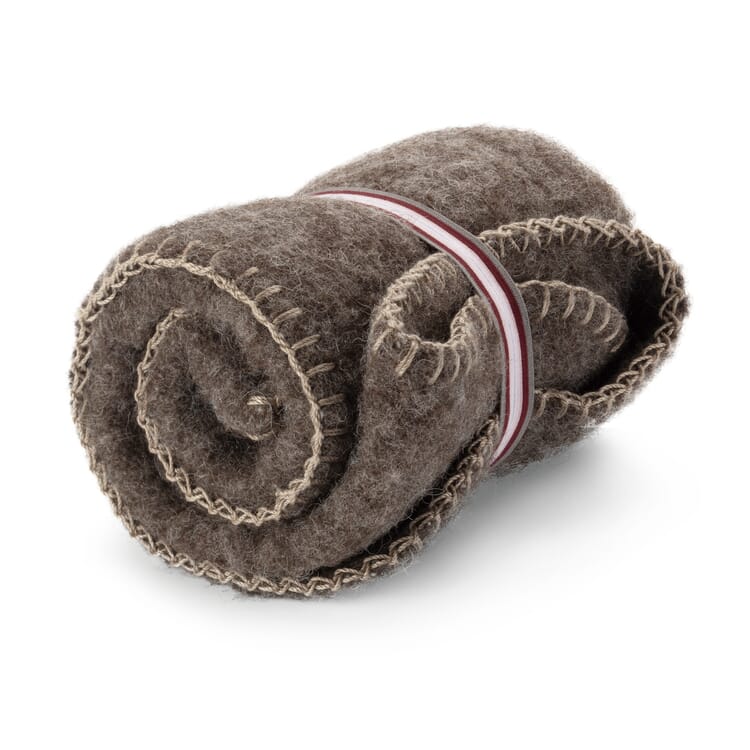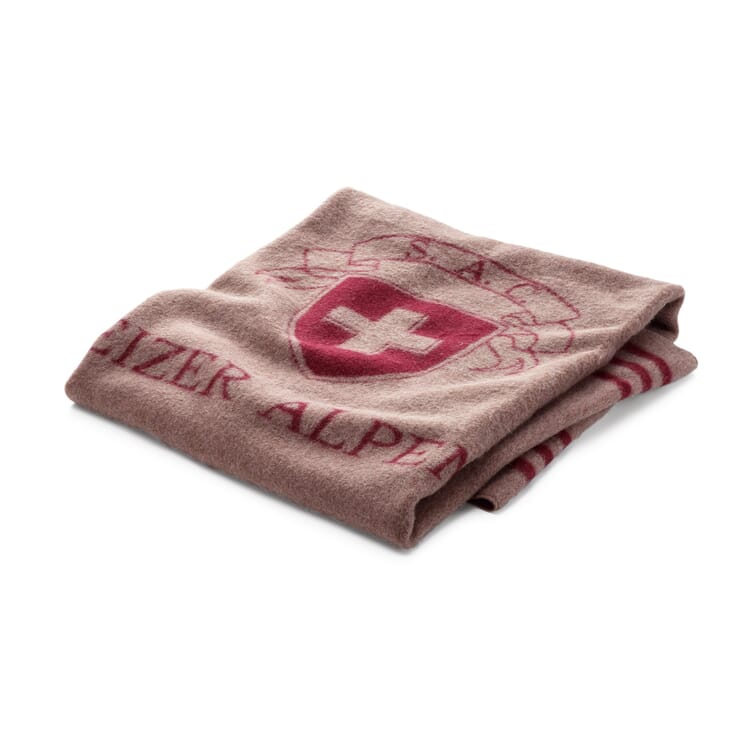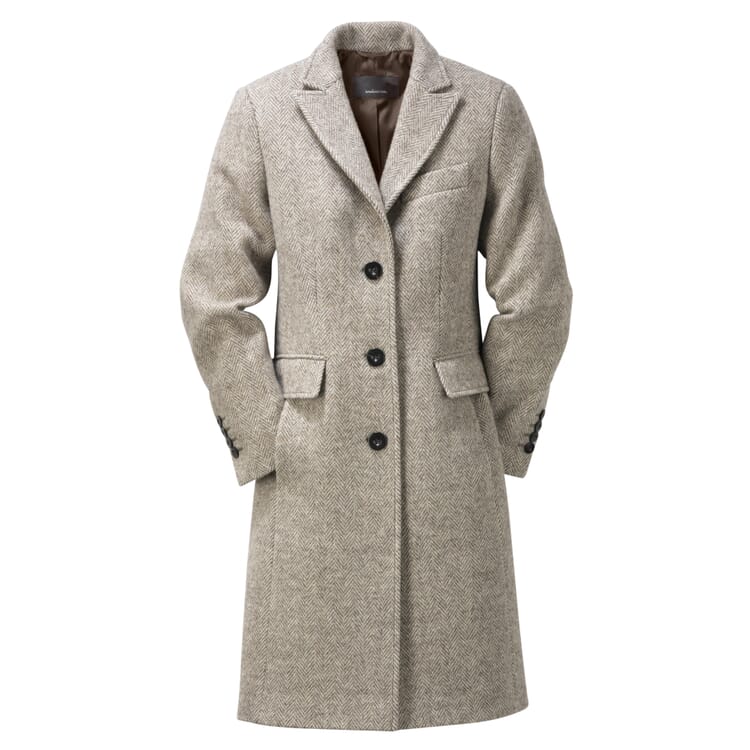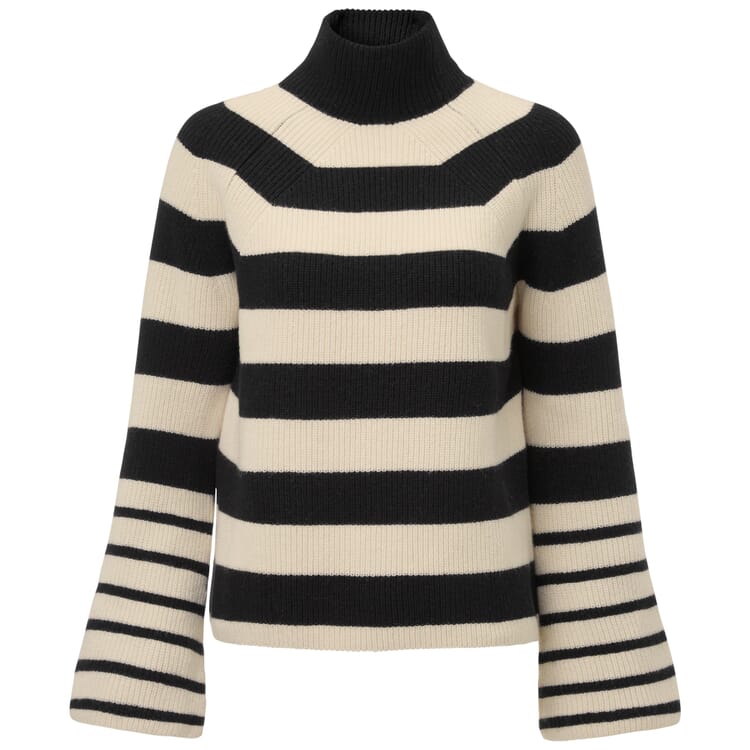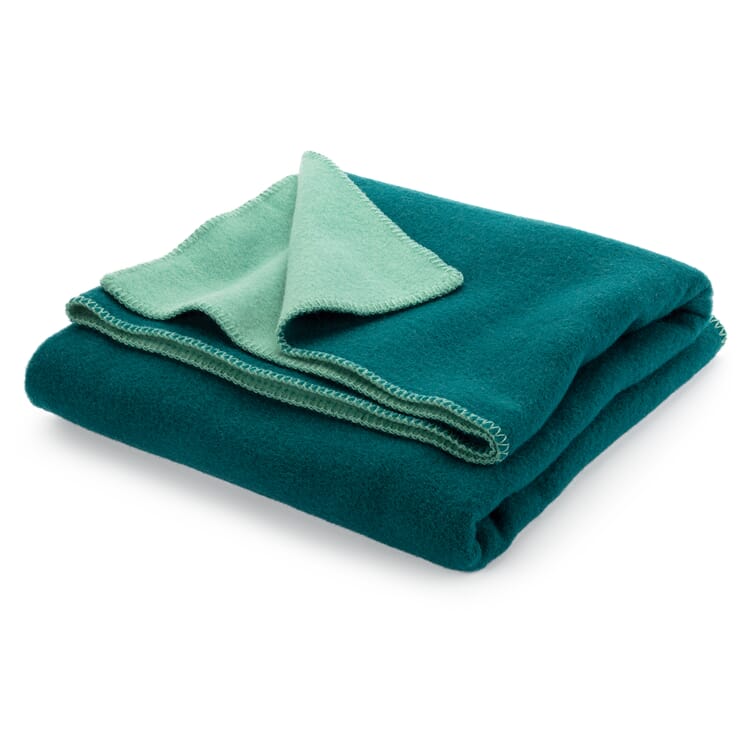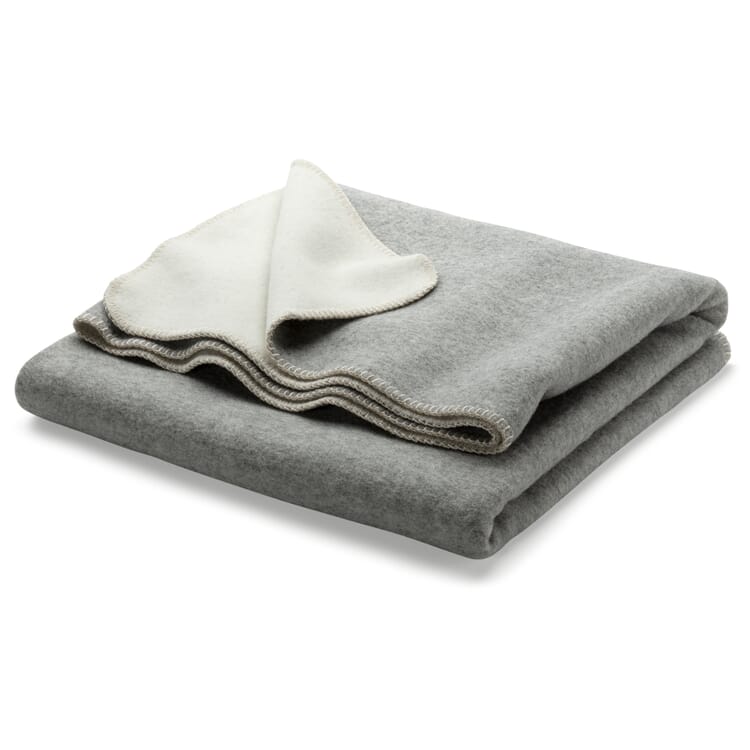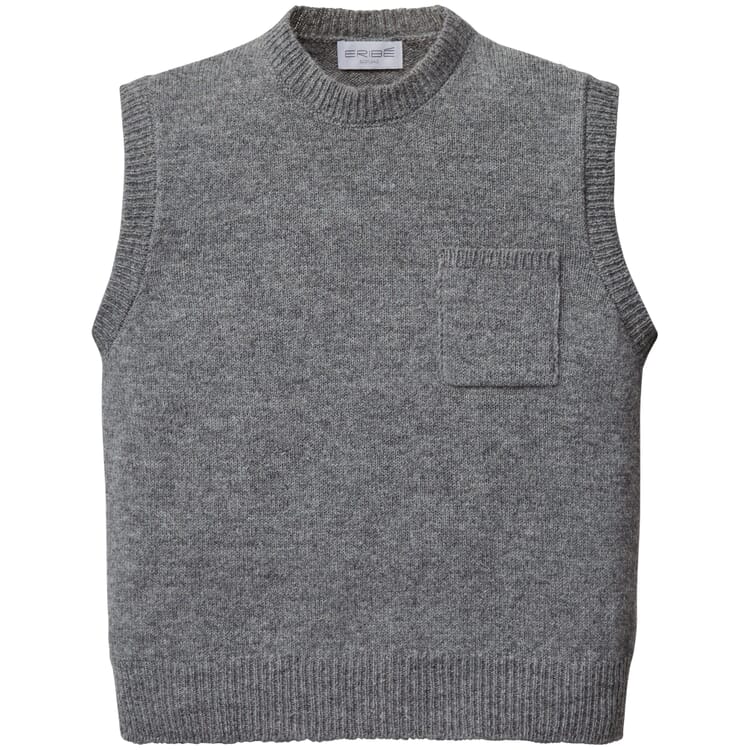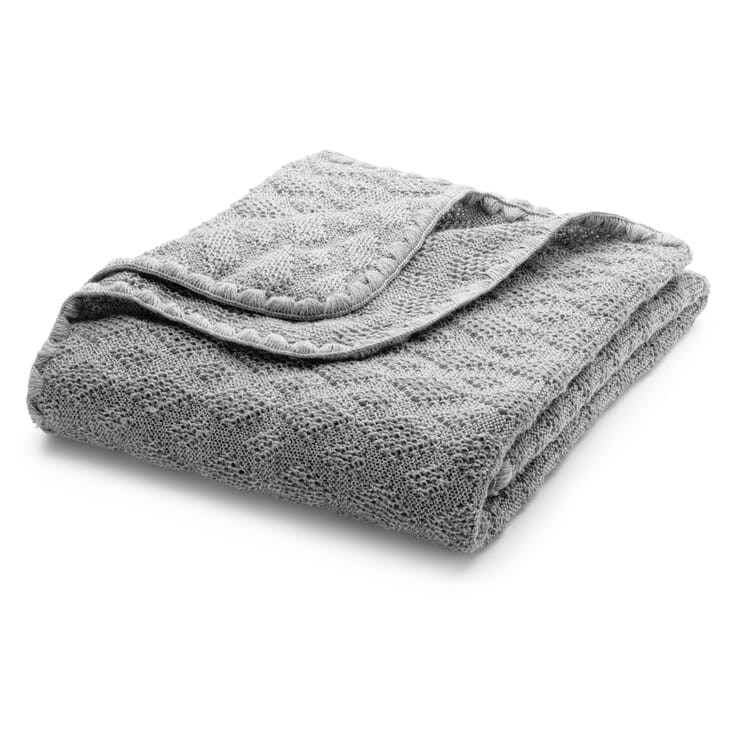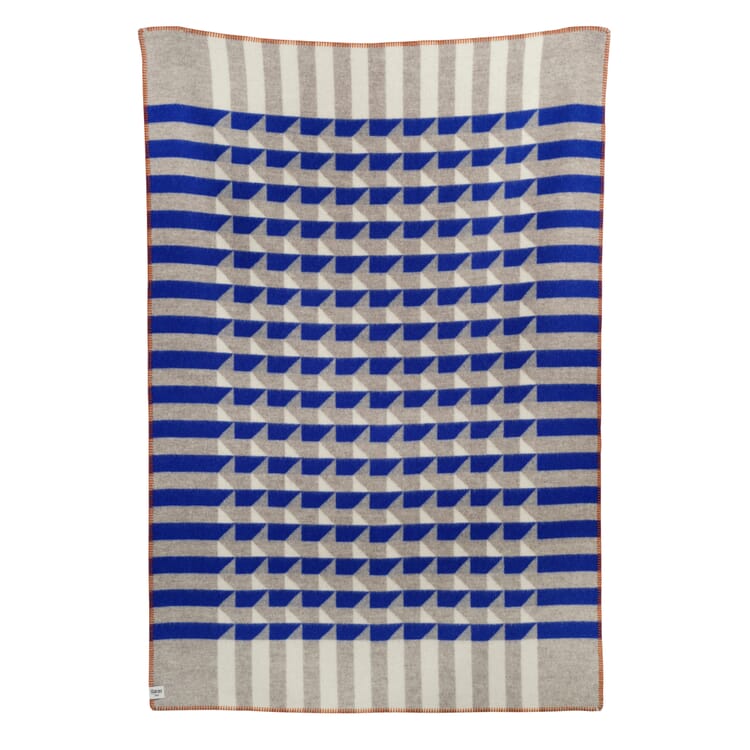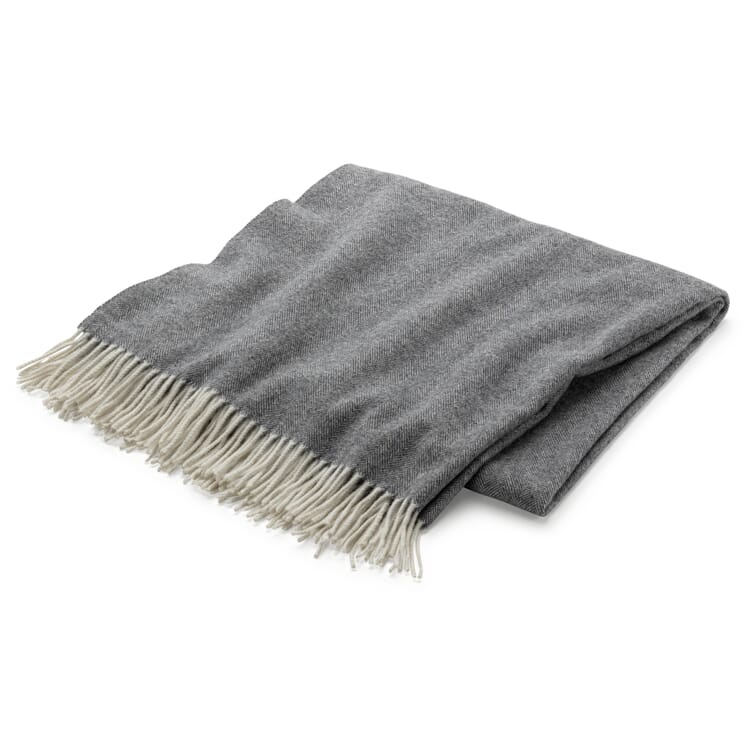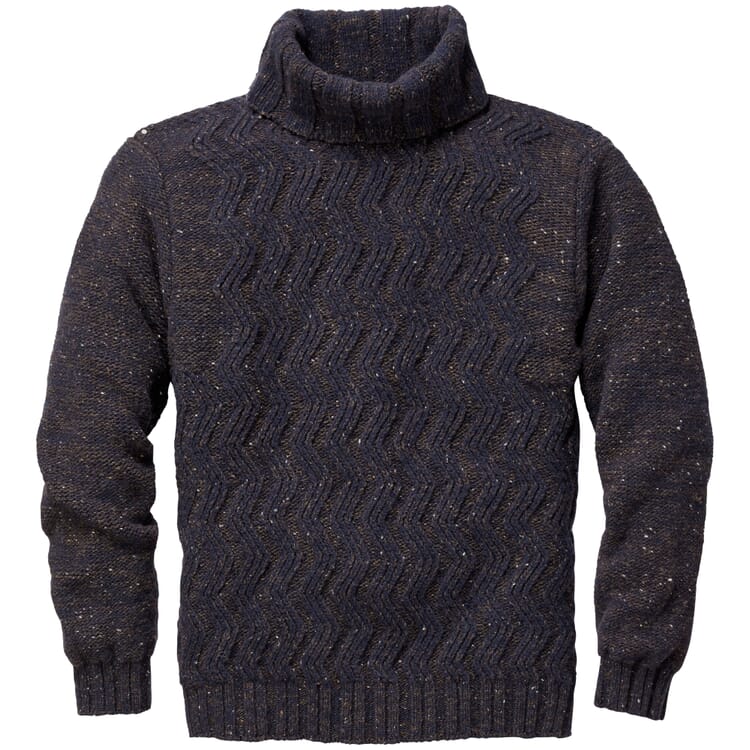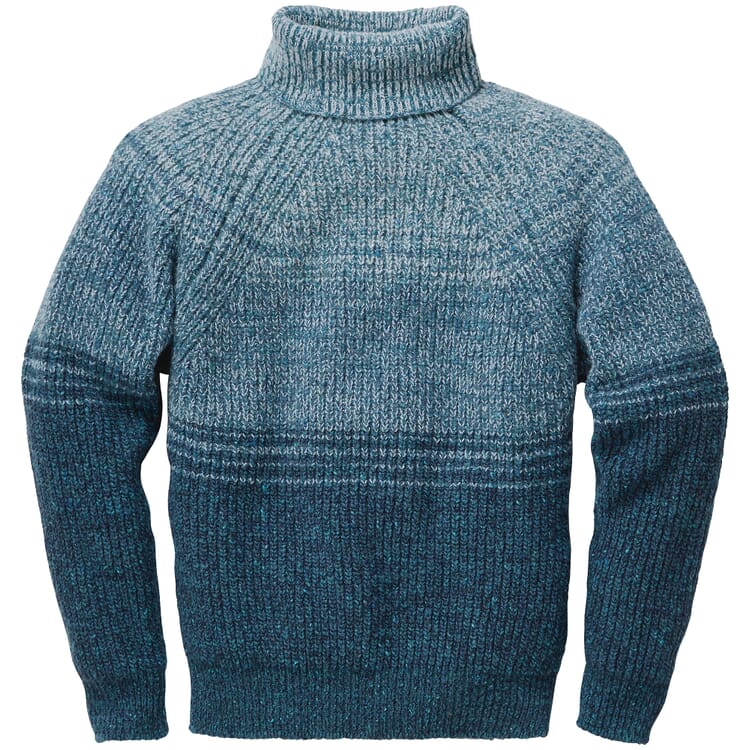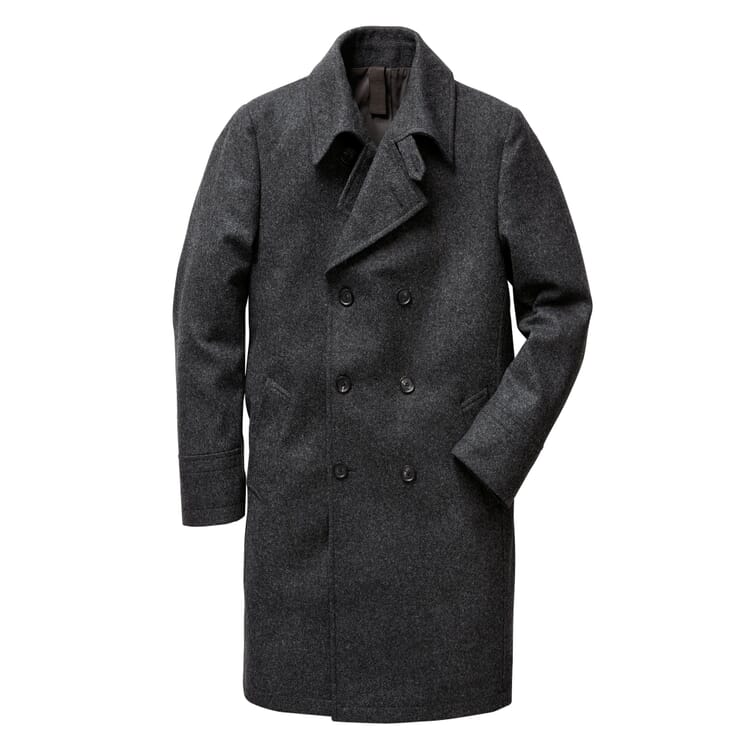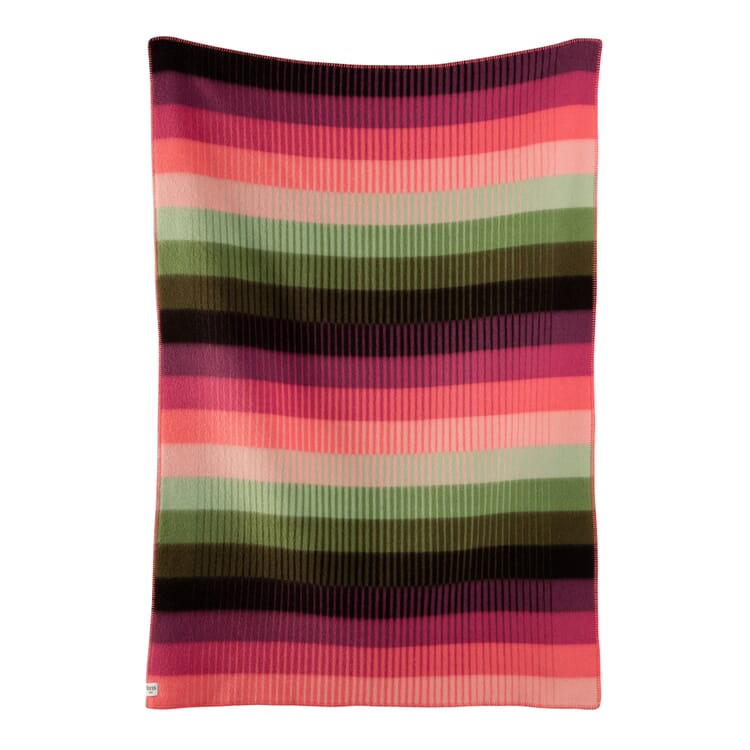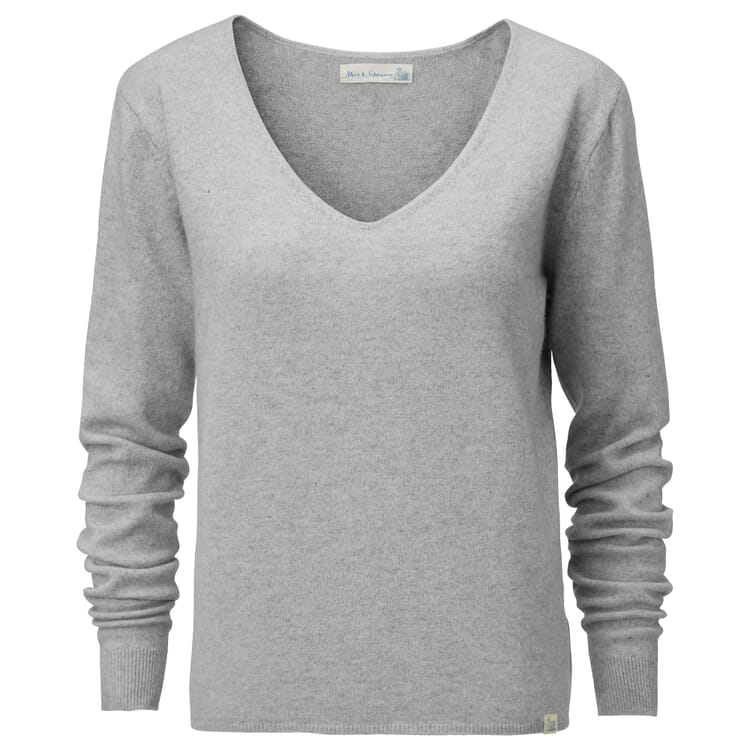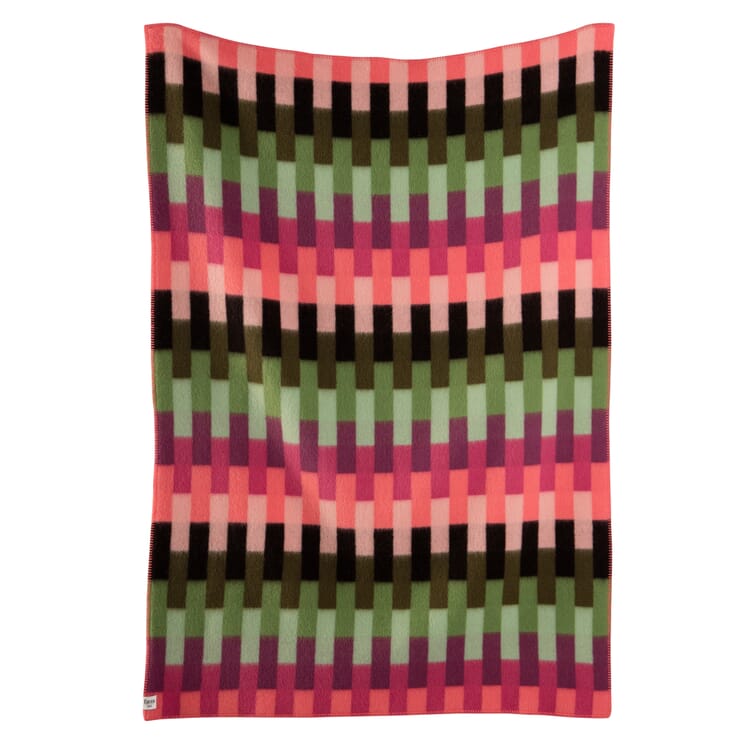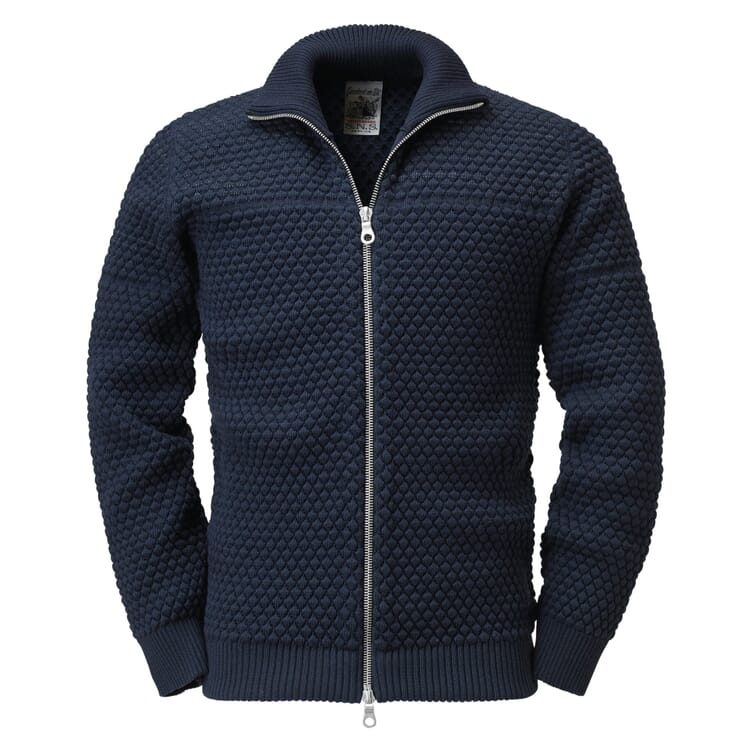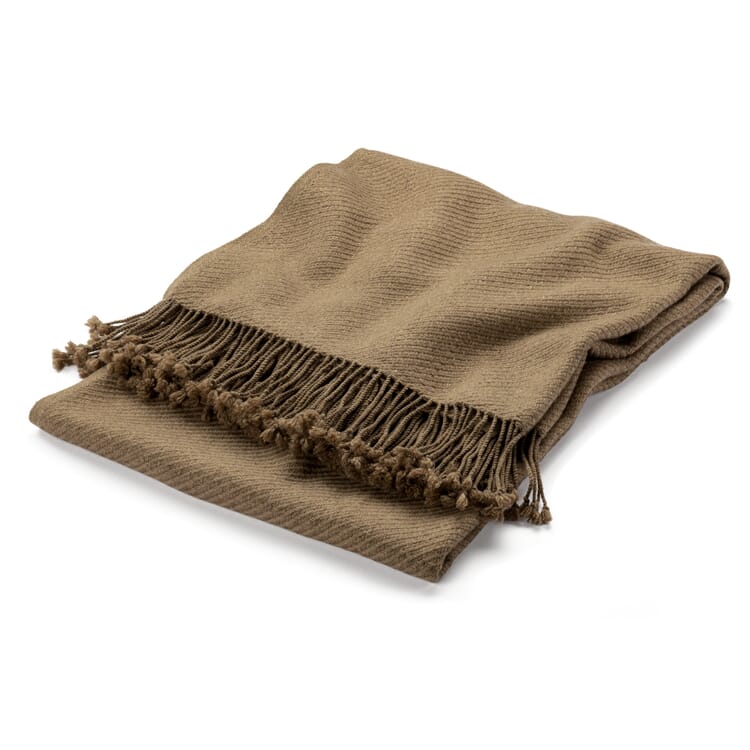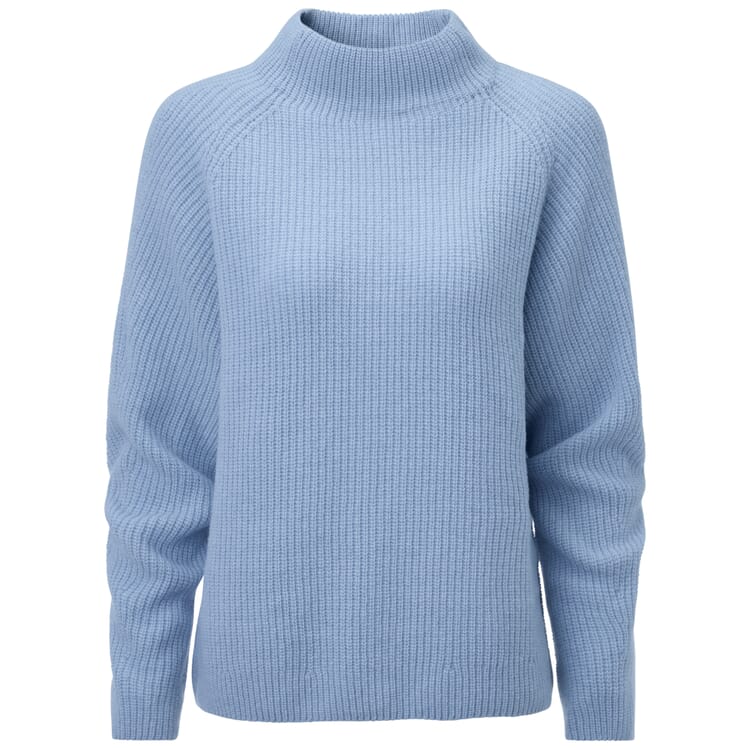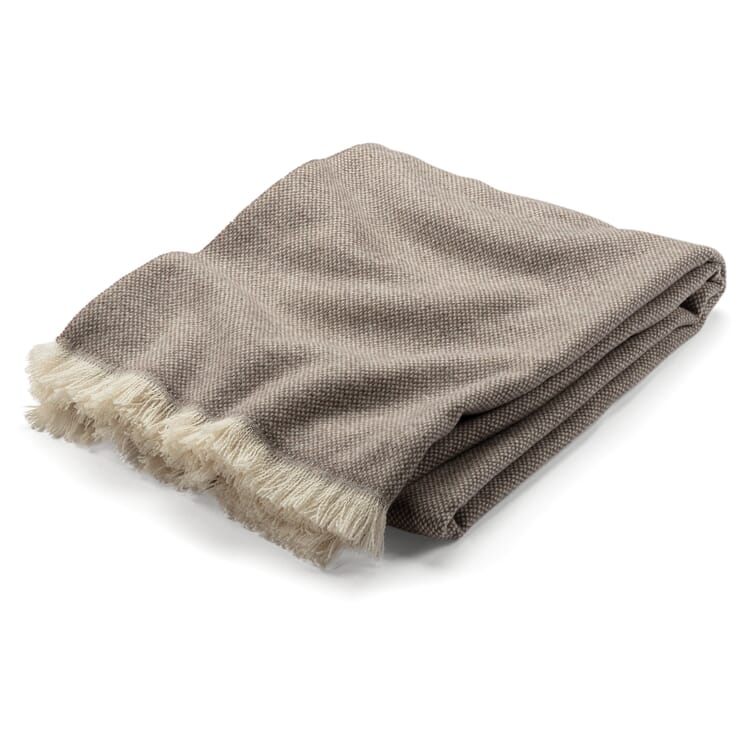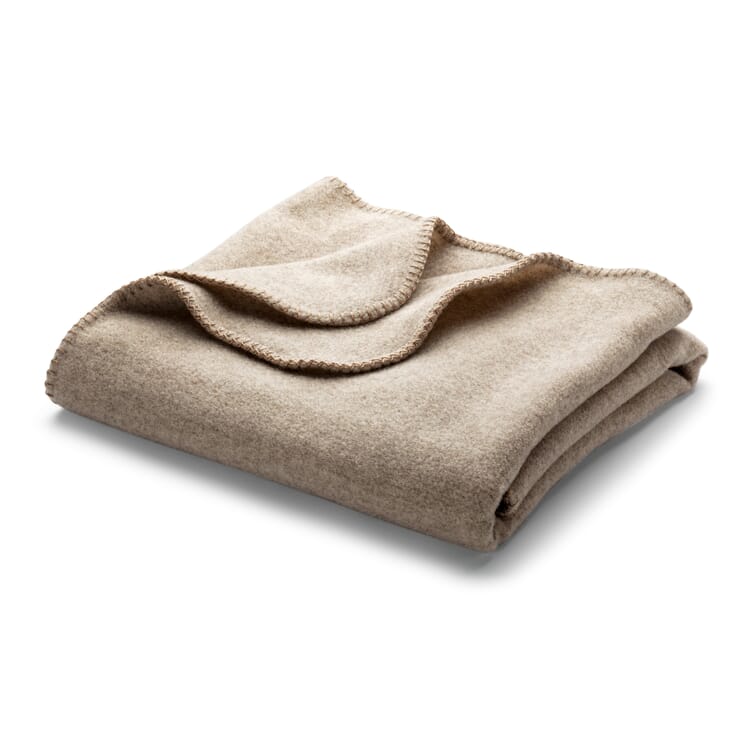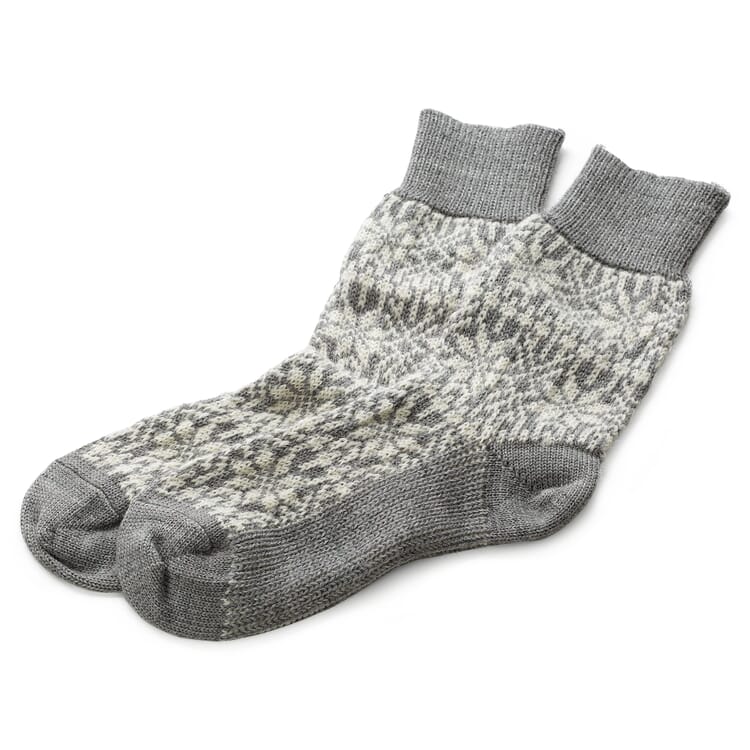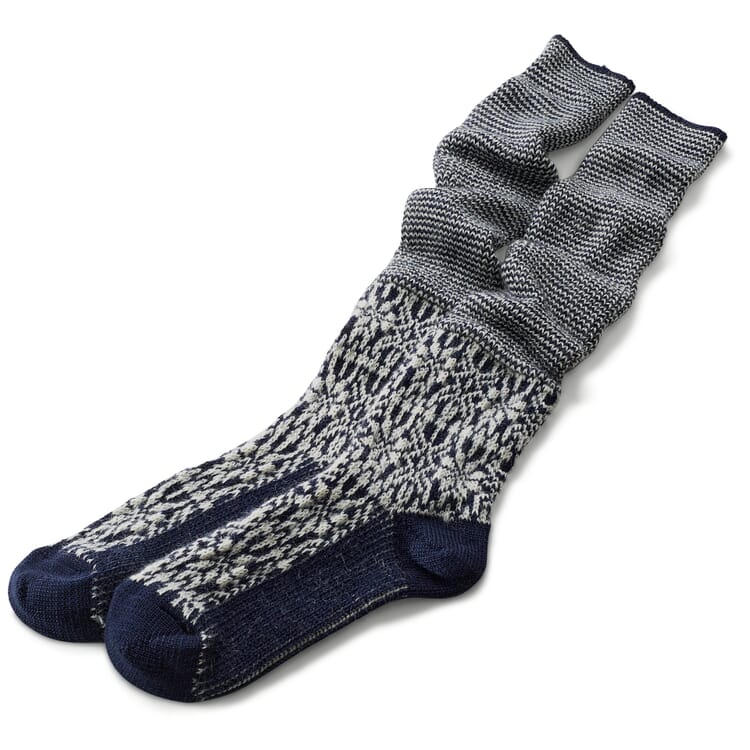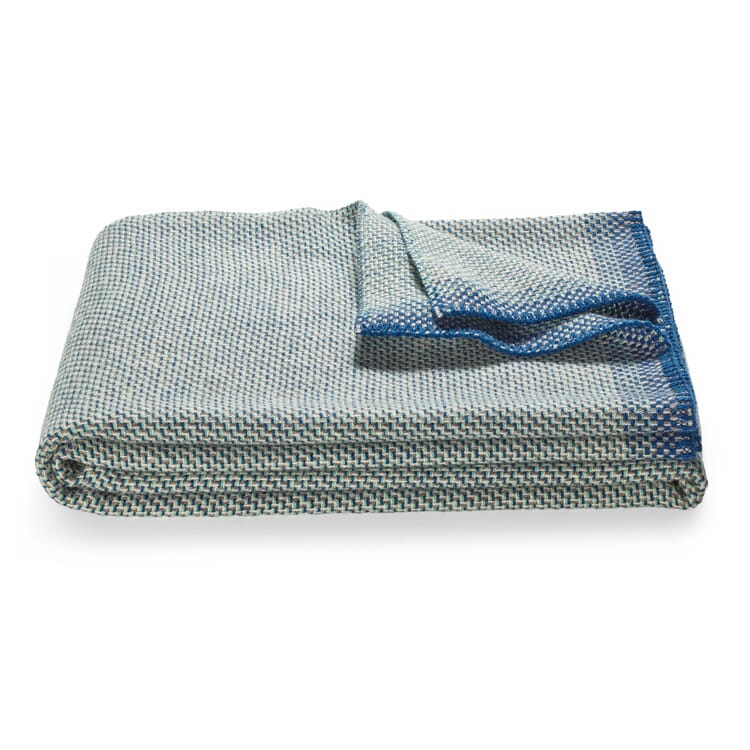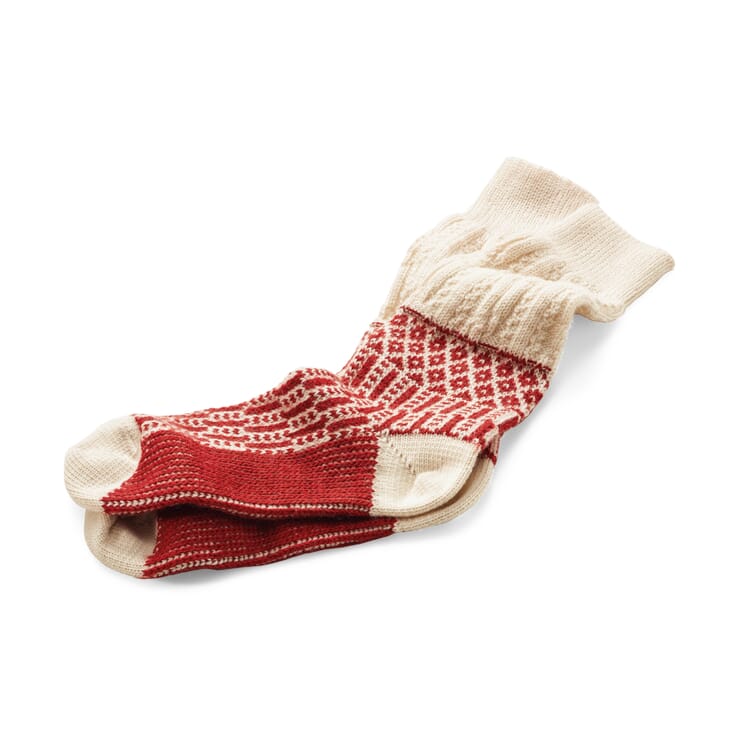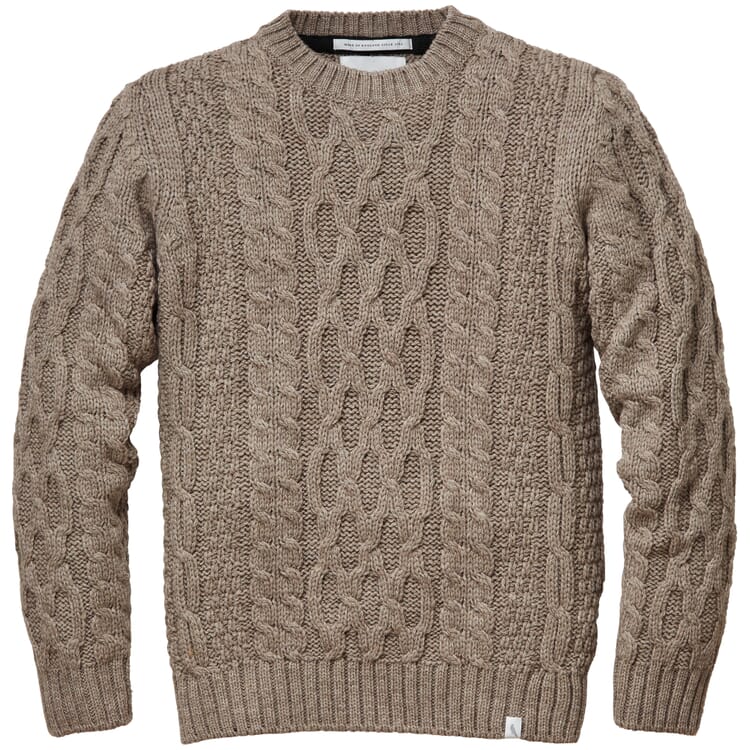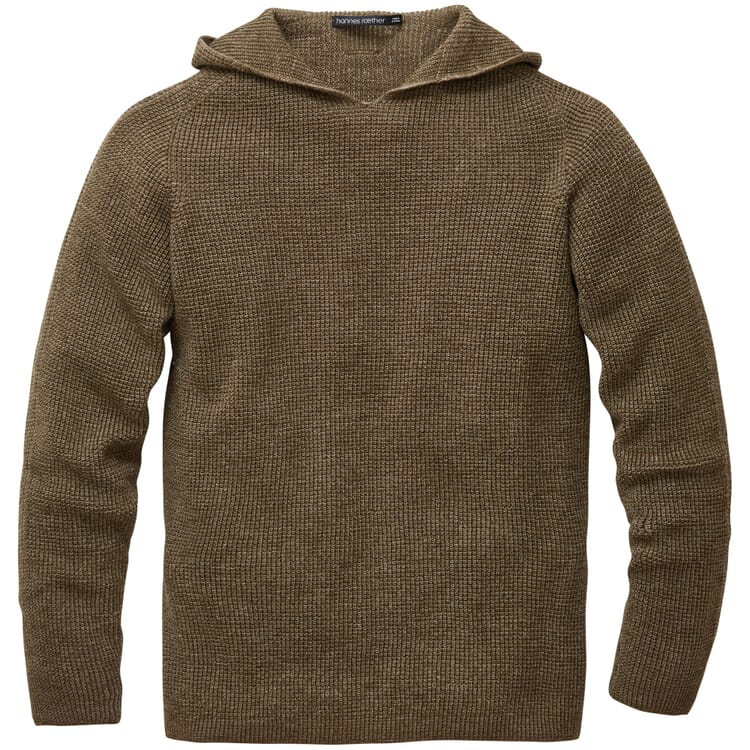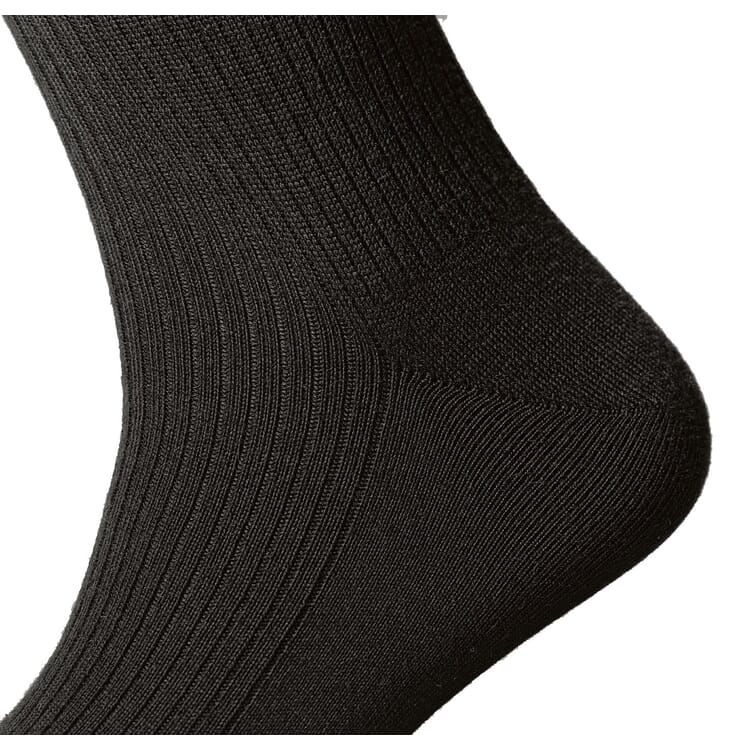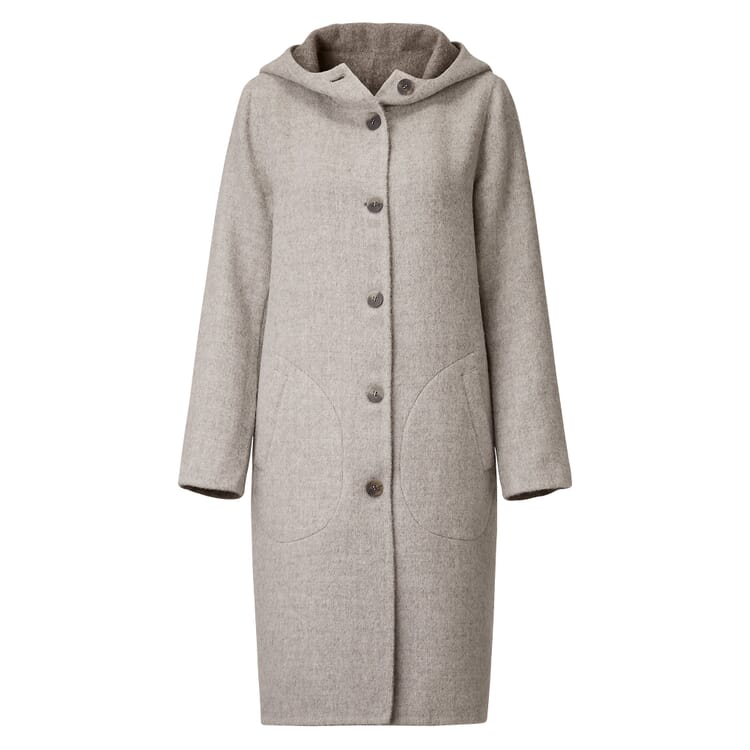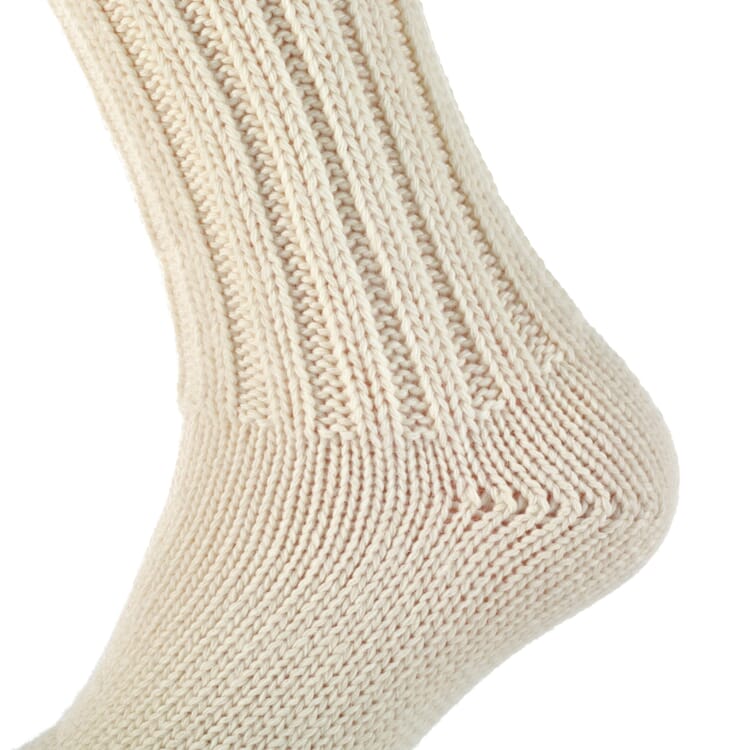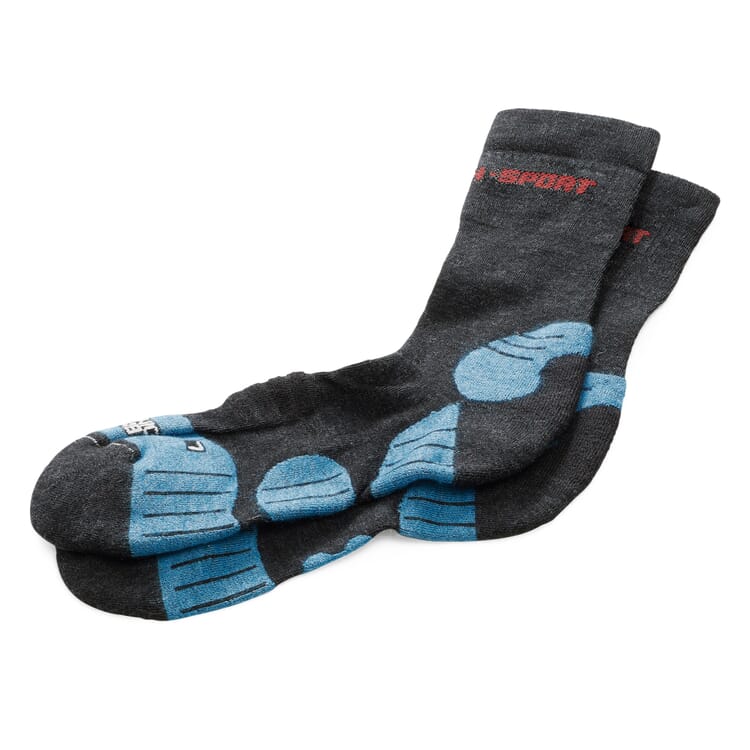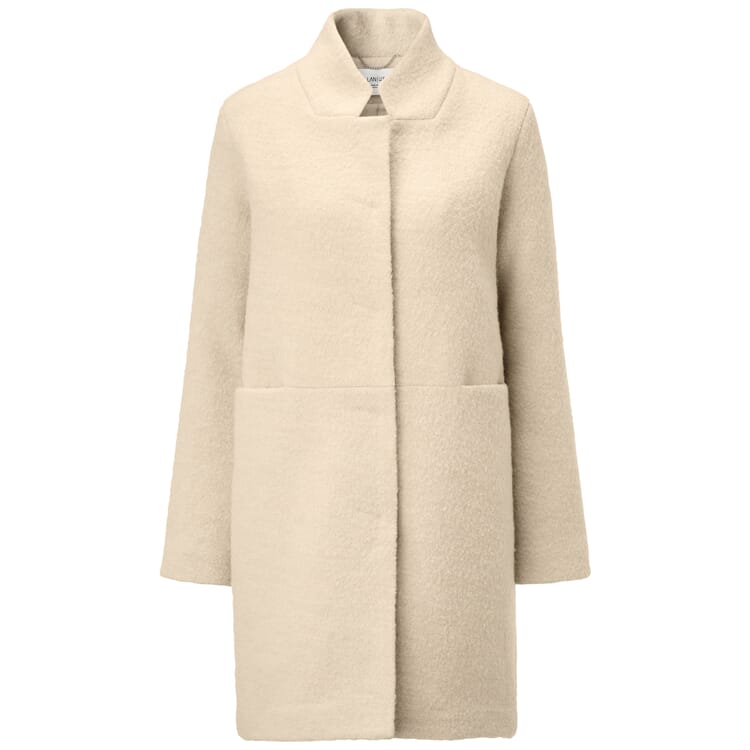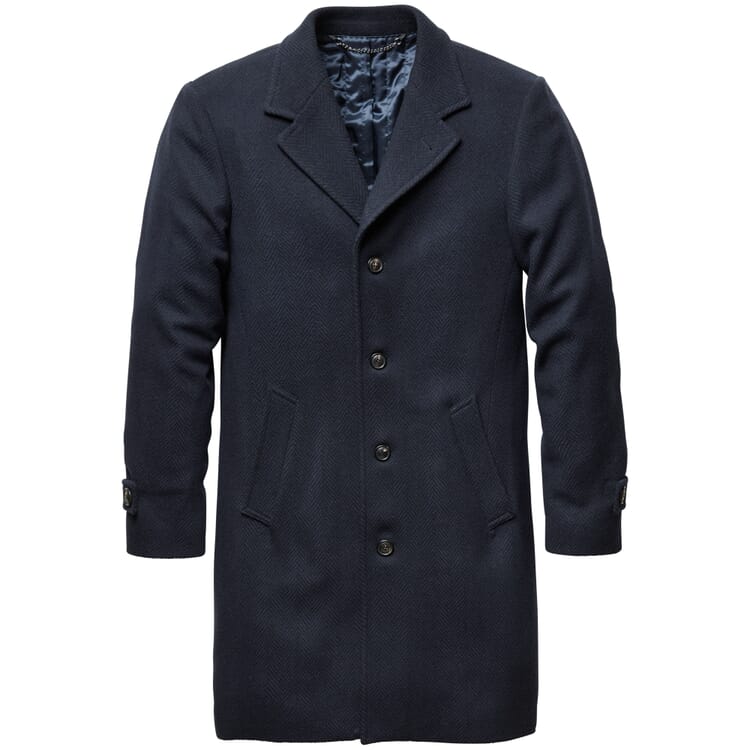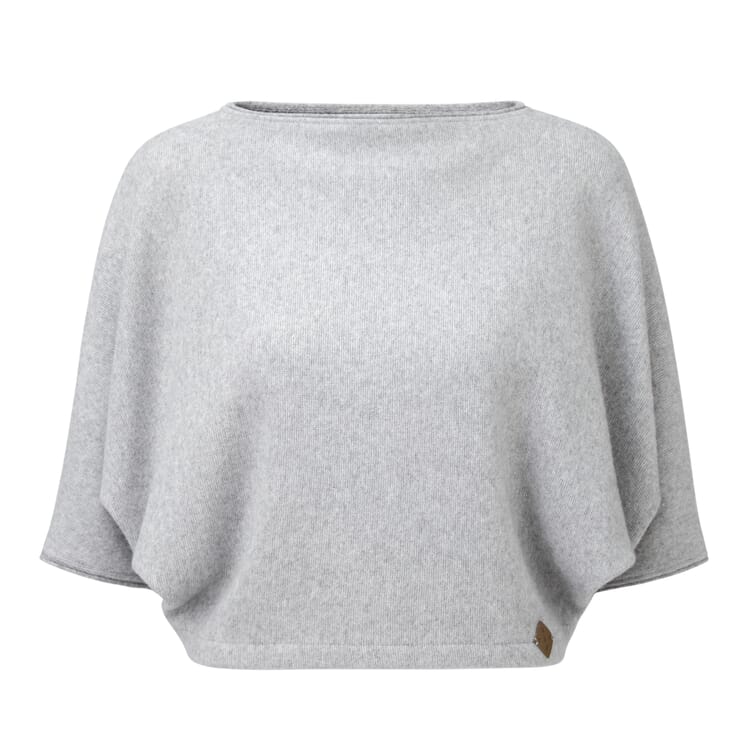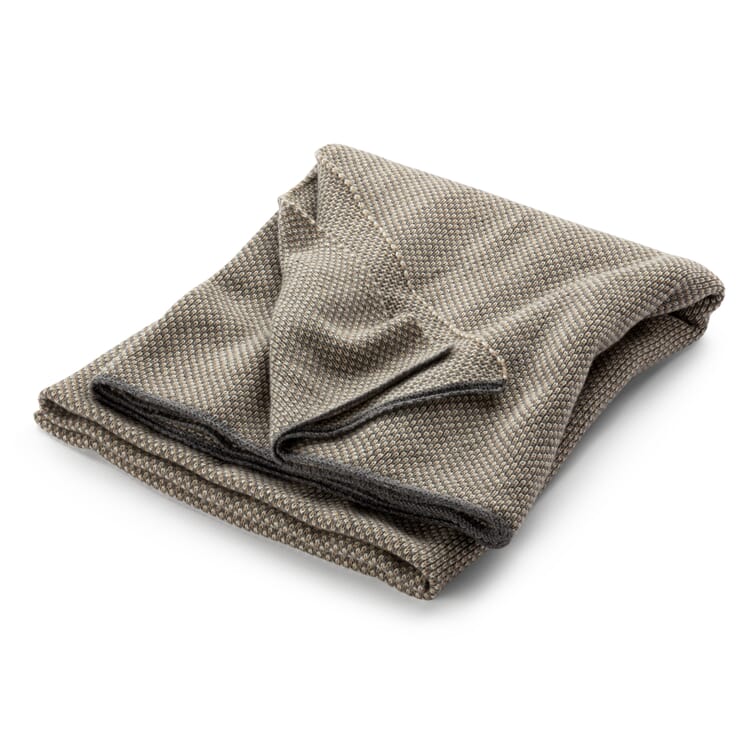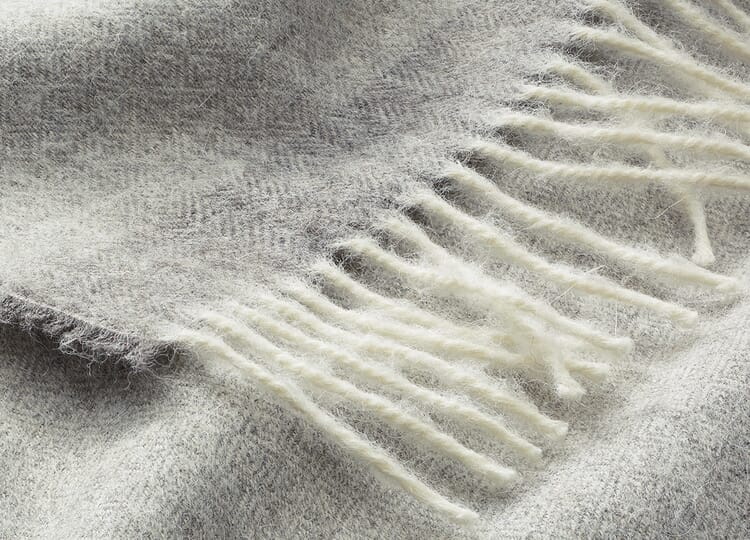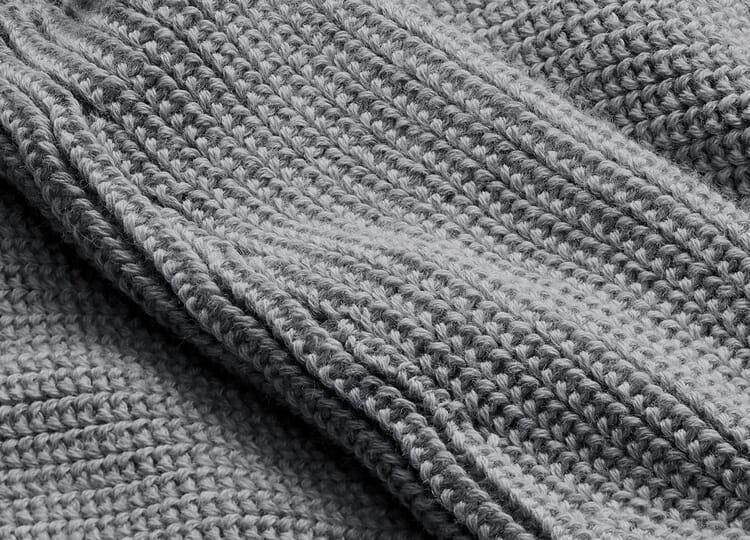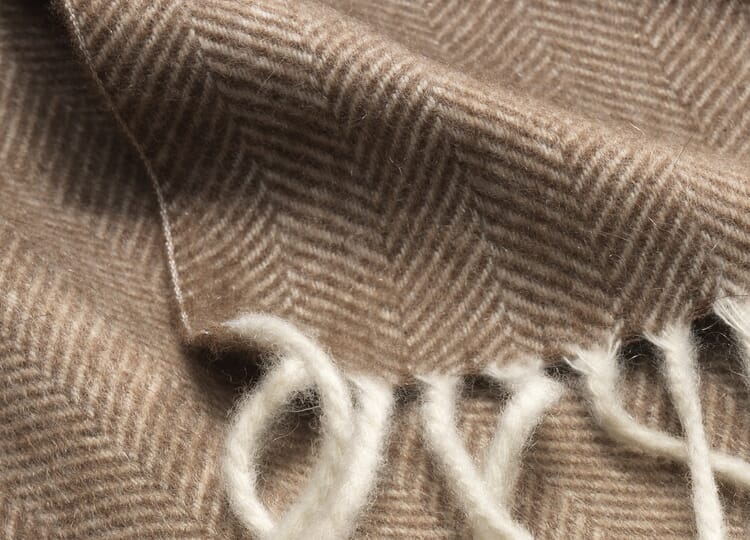Material
Pure new wool. Naturally self cleaning
Warming in winter, cooling in summer - virgin wool is a convincing natural fiber. However, it may be called such only if it was obtained by shearing live animals - which makes it of higher quality. The wool of merino sheep is considered to be of particularly high quality, as these animals have very fine wool hairs, which are extremely pleasant to the skin. Lamb wool comes from the first shearing of lambs, which is why it is exceptionally soft and warming. The main producing countries include Australia and New Zealand, followed by the wool-producing countries of South America and South Africa.
The properties of virgin wool
Mostly settled in steppes, heathlands and plateaus, sheep are exceptionally well suited to the changeable and sometimes harsh living conditions. For rain, sun, wind and cold do not bother them much thanks to the natural properties of their thick wool coat. From warming blankets to sweaters, coats and slippers to hats and scarves, these advantages can also be found in our products made of virgin wool: - Virgin wool is a renewable raw material and entirely biodegradable. The highly functional properties are already provided by the fiber, they do not have to be created chemically - The crimped structure of the wool fibers creates air chambers that insulate against both cold and heat. Knitted and woven fabrics made of virgin wool are therefore warming in winter and cooling in summer - The natural fiber is also extremely breathable (moisture-regulating), which makes it very comfortable to wear, even when things get a little sweaty. It can absorb up to a third of its own weight in moisture in the form of water vapor without feeling damp. At the same time, it is able to quickly release the moisture back into the environment. Thanks to their temperature- and moisture-regulating properties, textiles made of pure new wool can be worn all year round - the lanolin produced in the sebaceous glands of sheep forms a protective layer around the wool fibers, making them naturally water- and dirt-repellent. This has the advantage that garments or blankets made of virgin wool do not need to be washed as often - Their fibers are elastic, which keeps the textiles wrinkle-free and therefore do not need to be ironed Care instructions: Wool products are best washed by hand or in the washing machine on the gentle wool wash cycle. However, due to their self-cleaning properties, it is sufficient to air and brush out the garment in case of light soiling. Otherwise, hand wash with a mild wool detergent is recommended.
We attach great importance to the fact that the virgin wool used in the products in our range is obtained without animal suffering. We expressly reject the painful and traumatic practice of "mulesing" (the surgical removal of the folds of skin from the rear end of a sheep). That's why you won't find any products in which Australian wool has been processed, because Australia is the only country where mulesing is permitted and a common practice. We strongly advocate the use of sustainable virgin wool and the respectful treatment of animals. Our manufacturers source their virgin wool, for example, from traditional sheep farms in Germany, New Zealand or from certified farms in Argentina, Uruguay and Patagonia, where the animals grow up under controlled organic conditions (kbT).
Selected products from virgin wool
Recommended Topics
It warms in winter, is pleasantly cool in summer, and flatters the skin - merino wool is a unique, sustainable natural product with numerous highly functional properties. The extremely fine virgin wool comes from merino sheep, which are among the oldest and most resilient sheep breeds in the world. Their original home is the mountainous regions of North Africa. There they have to withstand sometimes extreme temperature differences
View moreCashmere, like alpaca, yak and camel hair, belongs to the noble hair. Cashmere is one of the softest, finest and lightest animal fibers, but also one of the most expensive. Depending on the quality, a kilogram of cashmere raw material can achieve a market value of up to 200 euros: the longer and finer the hair, the lower the proportion of remaining awn hair and the lighter the color, the higher the price.
View more
